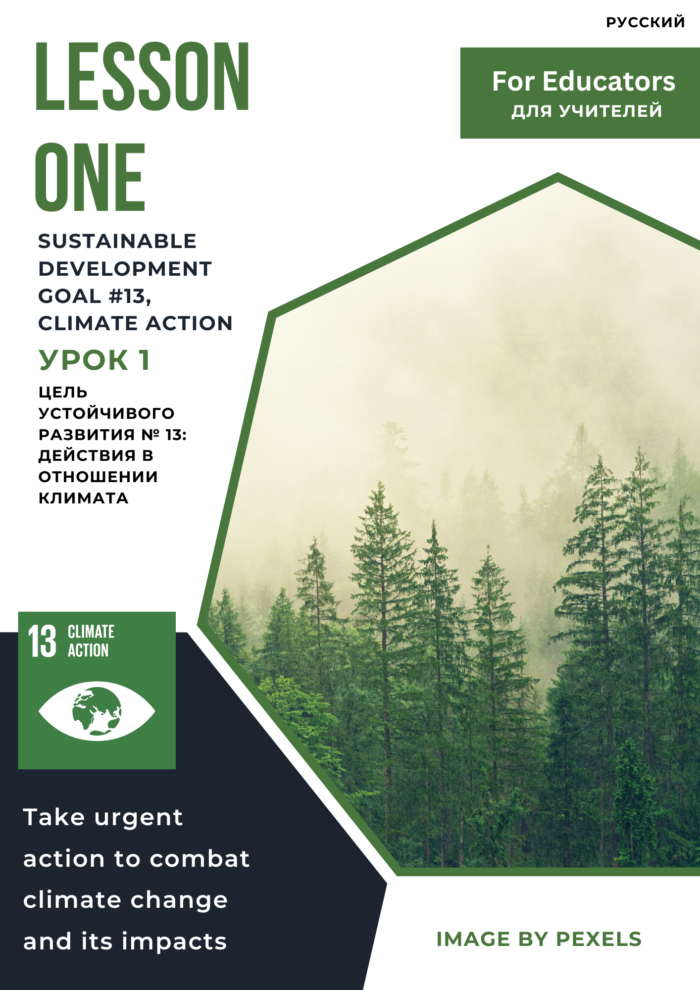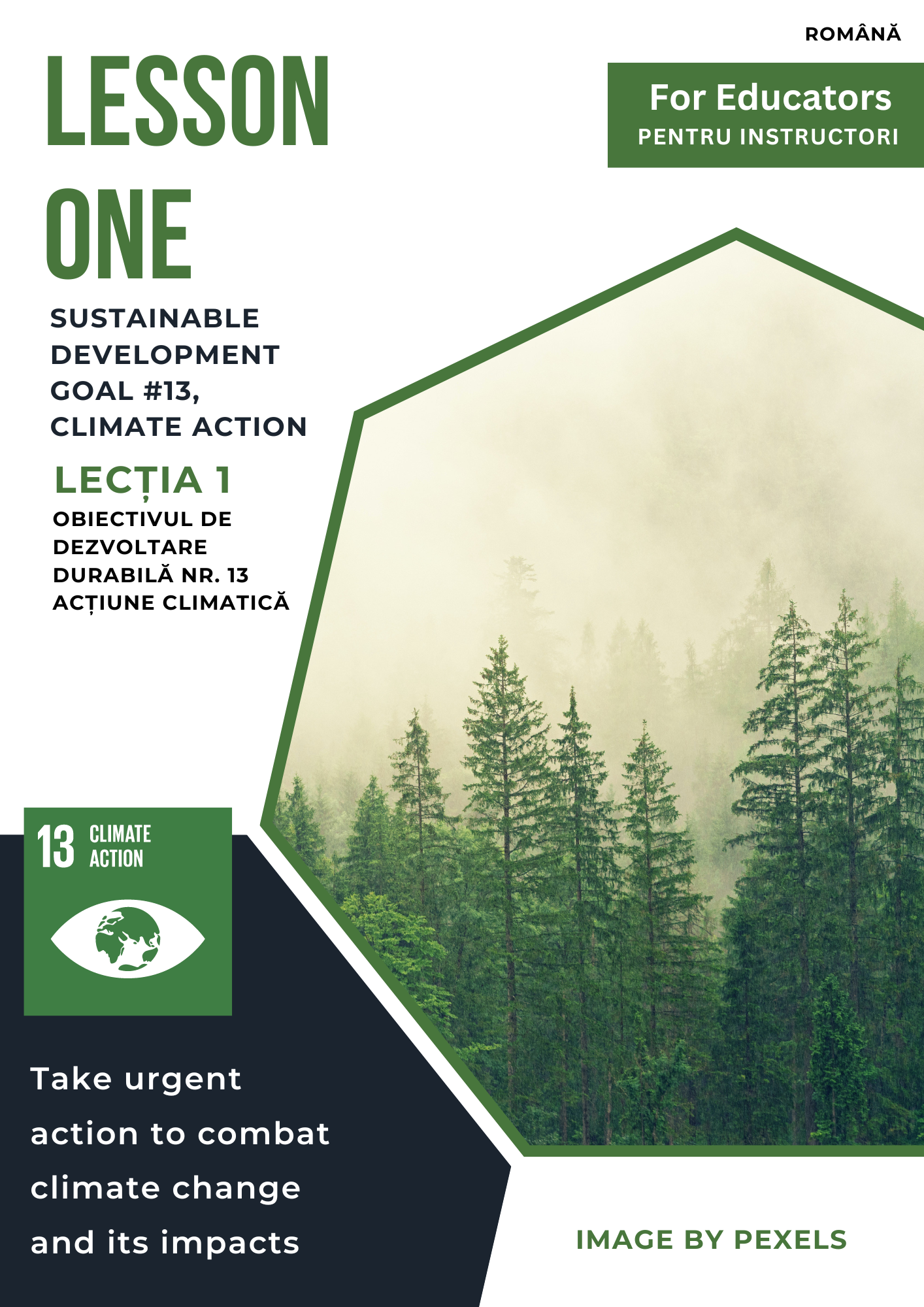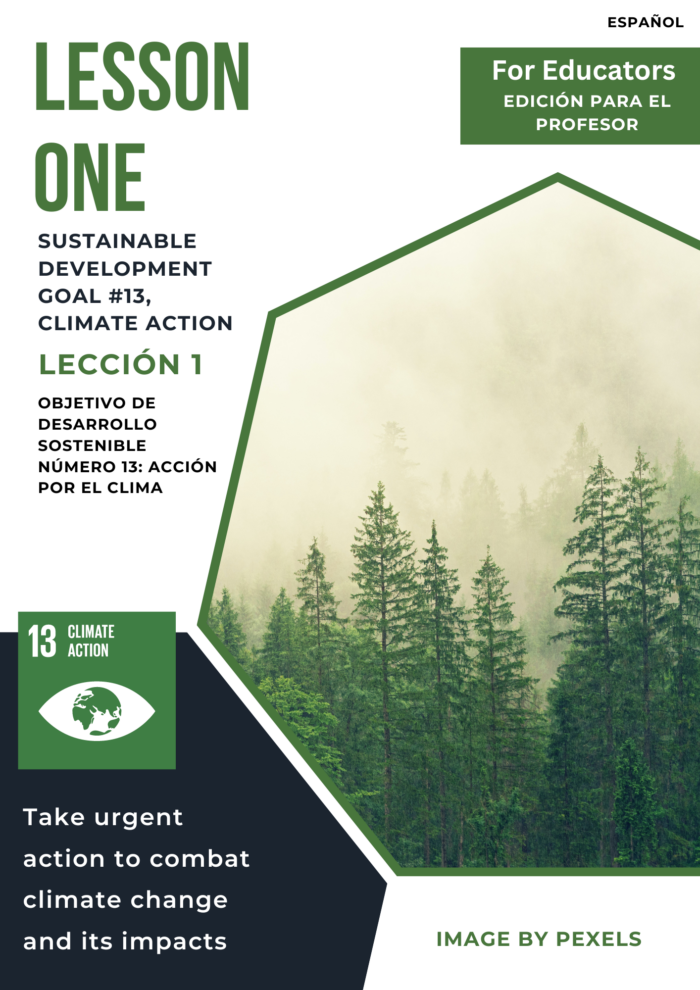Lesson One | SDG #13: Climate Action
![]() In this lesson, students learn about United Nations Sustainable Development Goal #13: Climate Action. They will examine the causes and consequences of climate change and explore possible courses of action to address the issue. Students will engage in activities to reflect on previous knowledge, develop new learning, and encourage creative and critical thinking.
In this lesson, students learn about United Nations Sustainable Development Goal #13: Climate Action. They will examine the causes and consequences of climate change and explore possible courses of action to address the issue. Students will engage in activities to reflect on previous knowledge, develop new learning, and encourage creative and critical thinking.
Some of the activities in this lesson include a KWL Chart using Jamboard, a think-pair-share, a cause and effect graphic organizer, and a Flip video. These individual and collaborative learning experiences will help students deepen their understanding of climate change and its impact on communities locally and globally. Through these activities, students will communicate what they have learned about climate change and sustainability and utilize problem-solving skills to generate tangible solutions.
Lesson Plans for Heritage Language Speakers




For full access to the translated Lessons and Supplemental Documentation, head to the
OER Commons Hub
Attribution and License
Attribution
This Open Educational Resource, Cultivating Global Competence through the United Nations Sustainable Development Goals, was developed by Ryan Hauck, Michele Anciaux-Aoki, Julianna Patterson, Gloria Kuzmenko-Latmier, Ina Chong, and Global Classroom, World Affairs Council – Seattle.
Cover image by Julianna Patterson from Canva.
Sustainable Development Goals images copyright United Nations. All rights reserved. Used pursuant to fair use.
Translations by:
Larisa Shuvalova
Iryna Novachuk
Inna Shynshyn
Nathan Marks
Brandon Severance
Otilia Baraboi
Ileana Marin
Alexey Kuznetsov
Pedro Lopez-Chaves
License
Except where otherwise noted, Cultivating Global Competence through the United Nations Sustainable Development Goals, copyright World Affairs Council – Seattle, is available under a Creative Commons Attribution-NonCommercial License. All logos and trademarks are property of their respective owners. Sections used under fair use doctrine (17 U.S.C. § 107) are marked.
This resource may contain links to websites operated by third parties. These links are provided for your convenience only and do not constitute or imply any endorsement or monitoring by the World Affairs Council. Please confirm the license status of any third-party resources and understand their terms of use before reusing them.